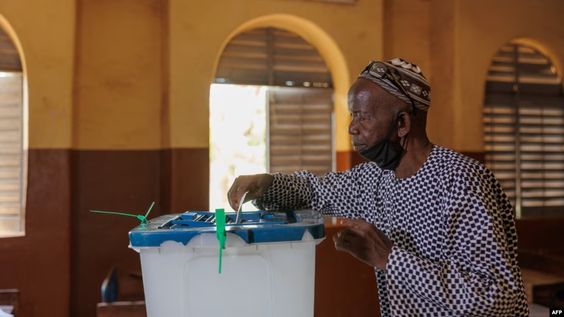Africa
Elections in Mali are anticipated to follow the counting of referendum votes

On Sunday, Mali began the process of tallying the results of a constitutional referendum that the nation’s governing military junta and regional powers claim will pave the way for elections and the restoration of civilian authority.
Under pressure from West African regional body the Economic Community of West African States, the junta, which took control in coups in 2020 and 2021, pledged to hold the referendum as part of a transition to democracy. Tuesday’s preliminary findings are anticipated.
Some of the proposed provisions in the new constitution produced by the transitional council have generated controversy, with proponents arguing they would reinforce flimsy political institutions and opponents arguing they would give the president excessive power.
The referendum itself, however, is seen by regional organizations and the UN as a crucial test of the junta’s commitment to the transition and the holding of a national democratic process, particularly at a time when Islamist extremists are ratcheting up their attacks.
In a Friday statement that was broadcast on television, interim president Colonel Assimi Goita stated, “We are betting on the future of our state, the restoration of its authority, and the rebuilt trust between institutions and citizens.
The suggested amendments, which include the introduction of a second parliamentary chamber to increase representation from all of Mali, are included. They were previously proposed in unsuccessful attempts to revise the constitution.
Mali would comply with a demand from the West African Economic and Monetary Union from 2000 if it establishes a separate court of auditors for governmental spending.
However, certain opposition parties, pro-democracy organizations, and those pushing for a “No” vote argue that unelected authorities like the junta do not have the authority to oversee such a significant constitutional reform.
However, I oppose this referendum even though I support a change of the constitution. I believe we could have done better, said attorney Fousseini Ag Yehia on Saturday in the nation’s capital Bamako, in reference to the actors’ validity and the process.
Armed factions in Northern Mali that agreed to a 2015 peace agreement, which has been in doubt ever since the junta took control, had demanded a boycott of the poll because it was “not sufficiently inclusive.”
No votes were cast in the northern town of Kidal on Sunday, according to Ahmoudane Ag Ikmasse, a former member of parliament for that area.
Voting only occurred in a handful of locations with a significant concentration of Malian armed personnel, such as Timbuktu, Gao, and Menaka, according to Ould Mohamed Ramadane, a spokesman for the Coordination of Azawad Movements (CMA), the northern Tuareg-led rebel group.
As the Sahel nation tries to regain security following a Tuareg uprising in 2012, terrorists affiliated with al Qaeda and the Islamic State control significant portions of northern Mali.
On Friday, Mali demanded that the United Nations peacekeepers who have been stationed there since 2013 leave because they were escalating tensions between the country’s many tribes.
Reuters
